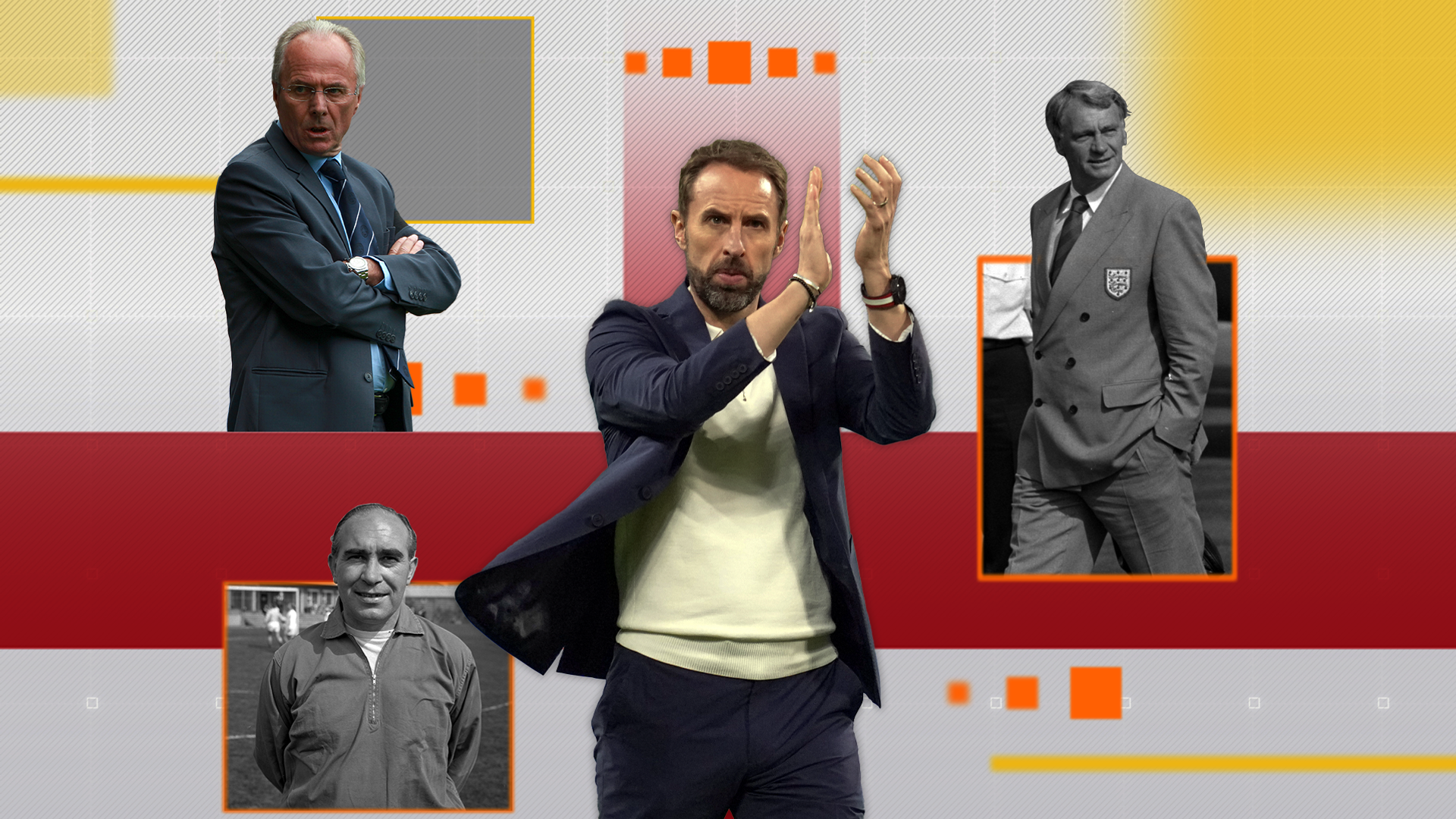After more than 100 games, Gareth Southgate’s tenure in the most high-pressured job in world football is over.
His cultural legacy already includes a West End play (soon to be turned into a TV series), an Atomic Kitten remix, and the healing of a nation’s collective trauma around penalty shootouts.
His footballing legacy is littered with moments that England fans will remember forever.
Kieran Trippier’s free-kick, Luke Shaw’s volley, Eric Dier’s penalty, Trent Alexander-Arnold’s penalty, Jordan Pickford’s saves! That Jude Bellingham overhead kick, that Ollie Watkins winner and the Cole Palmer strike last week that allowed us to believe for a few minutes more.
Read more:
Southgate resigns as England manager
Who could replace Southgate?
England’s nearly man was still a success
Despite some of the best tournament results in years, Southgate – like all those in the role before him – has been subject to near-constant fan criticism for his style of play being too negative and failing to get the most out of talented individuals.
Was the criticism fair? Let’s take a look at the data.
It’s all about winning
Only four England men’s managers – Fabio Capello, Sir Alf Ramsey, Glen Hoddle and Ron Greenwood – have won a higher percentage of their England games than Southgate.
It’s all about winning when it matters
When we look at wins at major tournaments – World Cups and Euros – Southgate’s record is more impressive.
Only Sir Alf Ramsey, who famously led England to World Cup glory in 1966, has a better record.
Capello’s near flawless record in qualifying was shown up at the 2010 World Cup, his only tournament in charge, so he drops from top of the overall list to second bottom.
What about the goals?
It might be a surprise to see that Southgate’s England scored more per game on average than under all but two previous England managers.
Combining that with solid defences means the difference between goals scored and conceded per game is better than any individual manager.
Only the England Selection Committee that picked sides prior to 1939 have a better overall record in terms of goal difference.
Southgate’s forwards also delivered when it mattered too. Only Glen Hoddle’s 1998 side scored more per game than Southgate’s teams have over the course of four tournaments.
Only Terry Venables’s 1996 side had a better average goal difference at major tournaments.
Tournament legacy
Goals and wins are nice but they only really matter if they lead to success.
Although Southgate ultimately failed to go all the way, no one can deny that he has made England genuinely competitive again at tournaments.
Inheriting a recent history of an embarrassing World Cup group-stage exit and a Euros loss to Iceland under Roy Hodgson, Southgate’s record ends with two Euros runners-up medals, a World Cup semi-final and a quarter-final.
England’s men’s teams have never sustained a series of finishes at tournaments like that in their history.
Southgate’s average finishing position – between third and fourth place – is bettered only by Venables whose 1996 team finished third in his only tournament in charge.
With Nations League fixtures as early as September and World Cup qualifying early next year, whoever steps into Southgate’s waistcoat/knitwear will need to act quickly to unite the team after a painful end to the Euros.
If by the end of their tenure they end up bettering his record, there’s a strong chance they will go down as England’s best ever.
The Data and Forensics team is a multi-skilled unit dedicated to providing transparent journalism from Sky News. We gather, analyse and visualise data to tell data-driven stories. We combine traditional reporting skills with advanced analysis of satellite images, social media and other open source information. Through multimedia storytelling we aim to better explain the world while also showing how our journalism is done.





